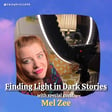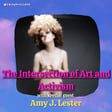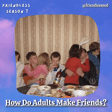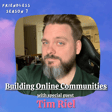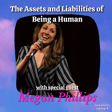
Love Means Mostly Having To Say You're Sorry (May Lil' Guy)
Welcome to the latest episode of "Friendless" with your host, James Avramenko. In this insightful and introspective episode, James delves into the art of making genuine apologies and the importance of direct and clear communication. From outlining the six steps of a meaningful apology to discussing the impact of social media on connections, James shares wisdom on navigating relationships with authenticity and self-awareness. Join us as we explore the nuances of forgiveness, personal growth, and the value of human connection in the ever-evolving landscape of communication. Stay tuned for a blend of heartfelt reflections, humorous anecdotes, and a sprinkle of bagel-related musings, all delivered with James' signature sincerity and wit.
Check out Sorry, Sorry, Sorry (but please don't buy through the link 🩵)
